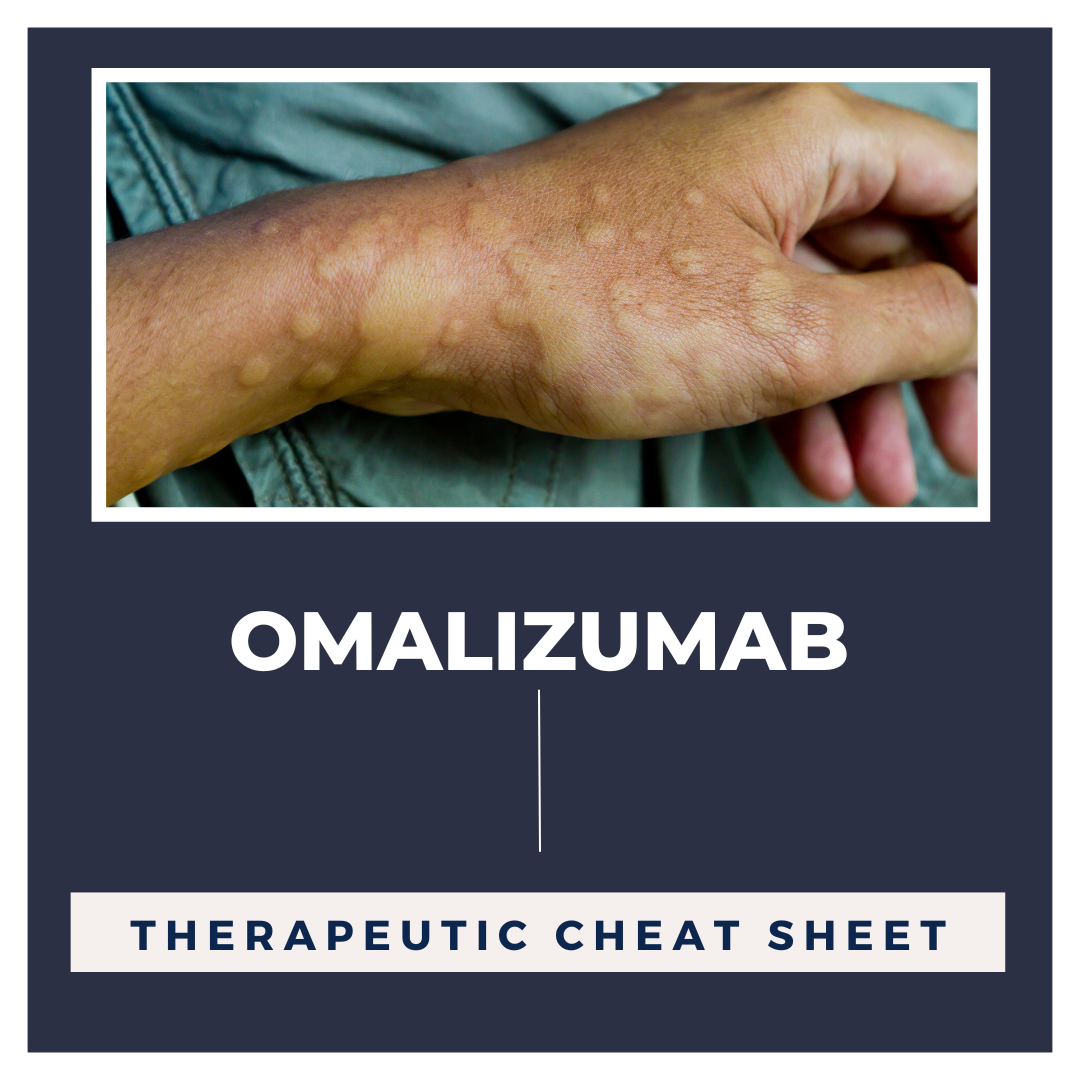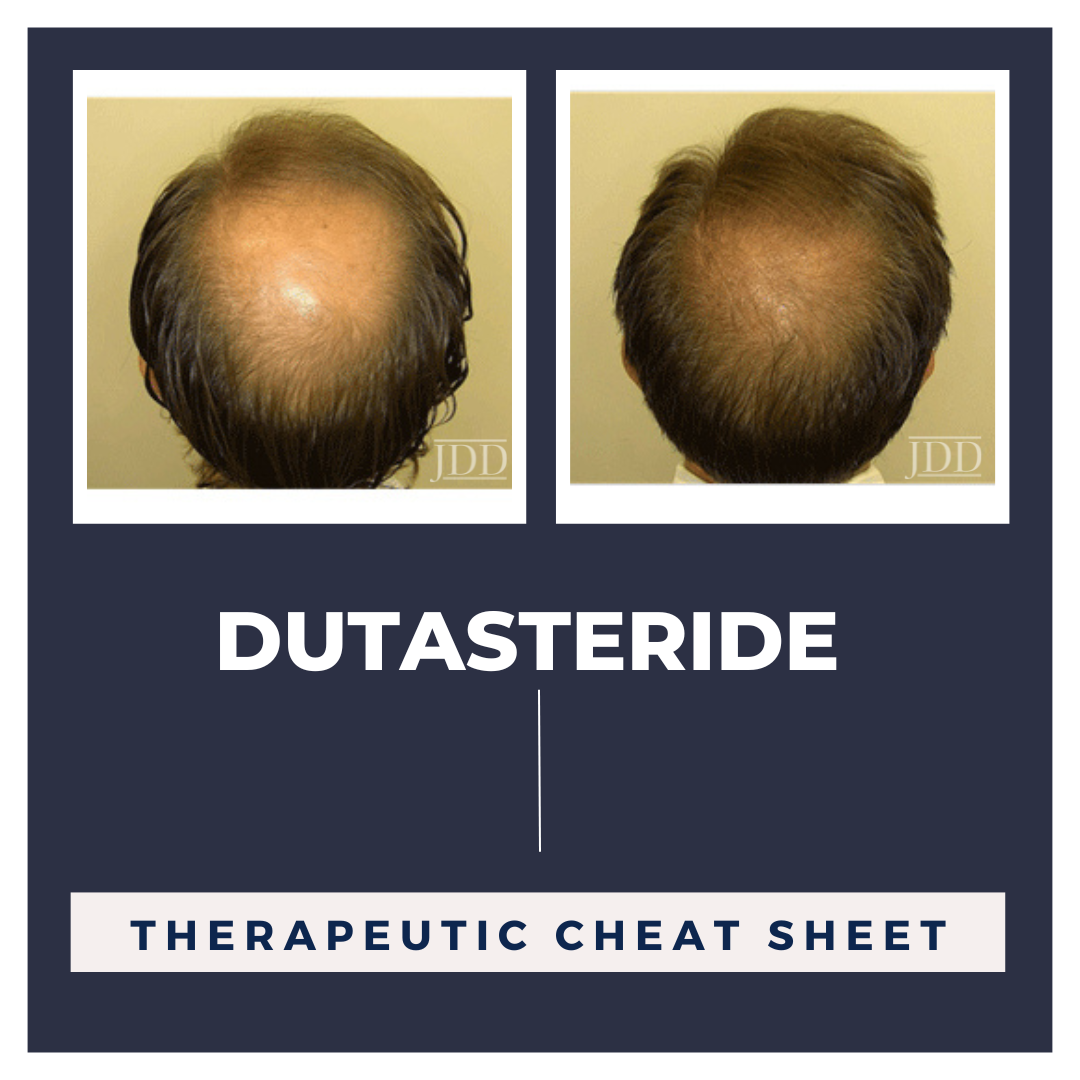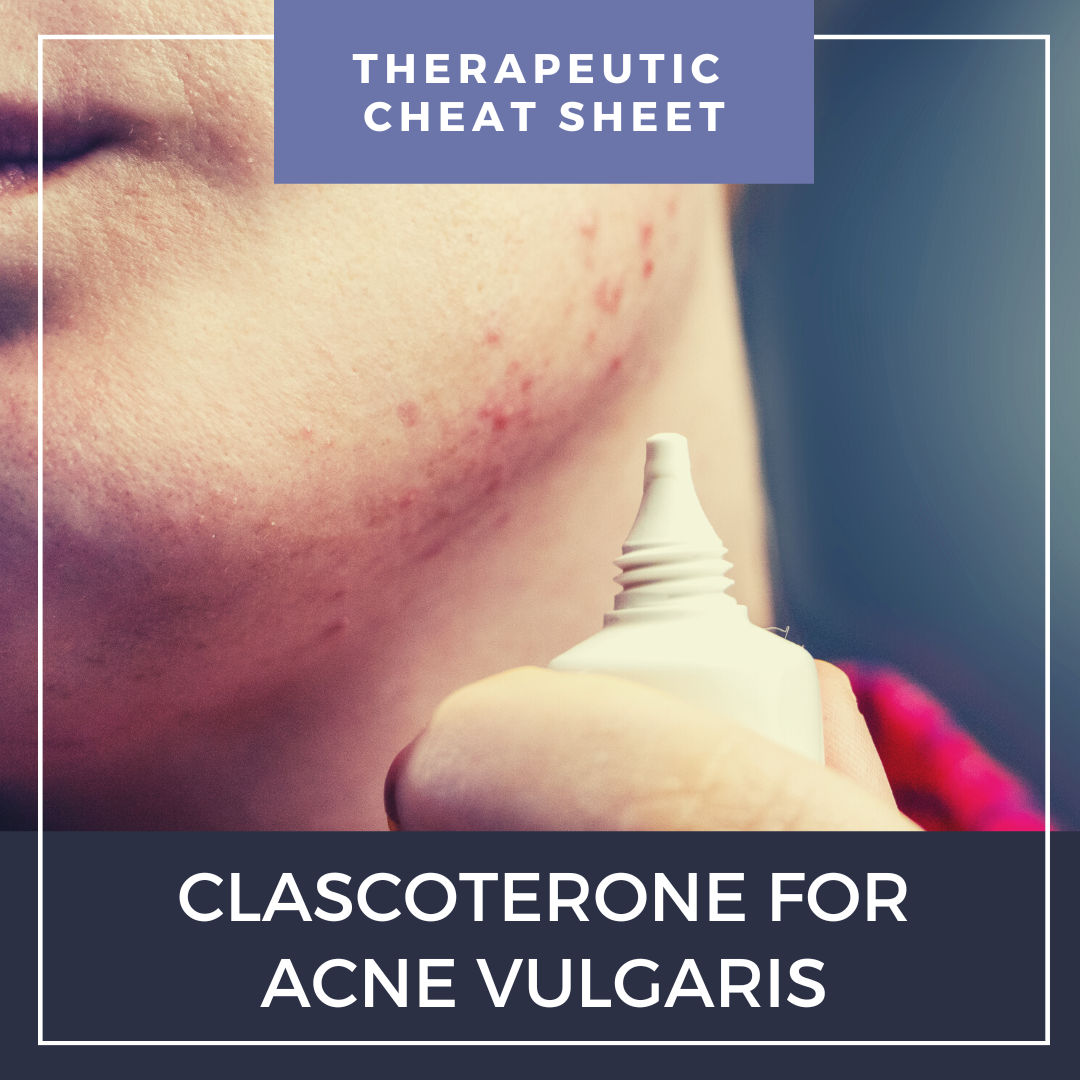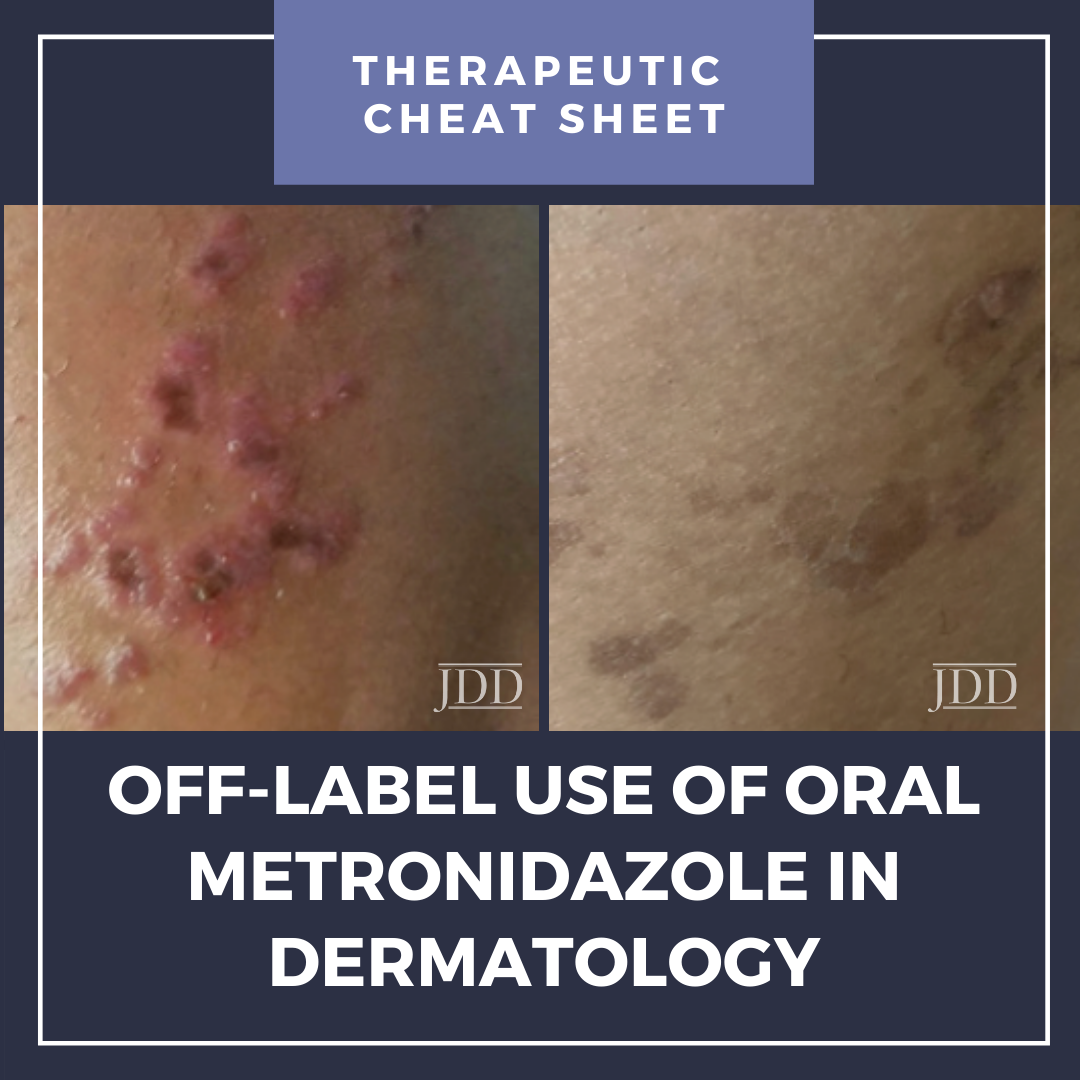Omalizumab Therapeutic Cheat Sheet
 Chronic idiopathic urticaria is urticaria for greater than 6 weeks without an identifiable trigger. Cases relapse in 20% of patients for more than 5 years and be difficult to manage; however, omalizumab is a recently approved option for treatment of chronic idiopathic urticaria showing beneficial outcomes.1 Omalizumab is an injectable monoclonal antibody that has been FDA approved not just for chr …
Chronic idiopathic urticaria is urticaria for greater than 6 weeks without an identifiable trigger. Cases relapse in 20% of patients for more than 5 years and be difficult to manage; however, omalizumab is a recently approved option for treatment of chronic idiopathic urticaria showing beneficial outcomes.1 Omalizumab is an injectable monoclonal antibody that has been FDA approved not just for chr …
 Chronic idiopathic urticaria is urticaria for greater than 6 weeks without an identifiable trigger. Cases relapse in 20% of patients for more than 5 years and be difficult to manage; however, omalizumab is a recently approved option for treatment of chronic idiopathic urticaria showing beneficial outcomes.1 Omalizumab is an injectable monoclonal antibody that has been FDA approved not just for chr …
Chronic idiopathic urticaria is urticaria for greater than 6 weeks without an identifiable trigger. Cases relapse in 20% of patients for more than 5 years and be difficult to manage; however, omalizumab is a recently approved option for treatment of chronic idiopathic urticaria showing beneficial outcomes.1 Omalizumab is an injectable monoclonal antibody that has been FDA approved not just for chr … 

 Next Steps in Derm and the Journal of Drugs in Dermatology, in partnership with the Dermatology Education Foundation (DEF) and Physicians Resources, interviewed Dr. Ted Rosen (Professor, Vice-Chair of Dermatology, and Chief of Dermatology at the Houston Veterans Affairs Medical Center) on his favorite off-label treatment pearls. Watch as he shares how to use indomethacin for the angry red scrot …
Next Steps in Derm and the Journal of Drugs in Dermatology, in partnership with the Dermatology Education Foundation (DEF) and Physicians Resources, interviewed Dr. Ted Rosen (Professor, Vice-Chair of Dermatology, and Chief of Dermatology at the Houston Veterans Affairs Medical Center) on his favorite off-label treatment pearls. Watch as he shares how to use indomethacin for the angry red scrot …  Androgenic alopecia (AGA) is one of the most common forms of hair loss and represents a frequently faced disabling concern in dermatology visits. Targeting the 5α-dihydrotestosterone (DHT) pathway has been shown to be an efficacious mechanism of action, with finasteride being the only systemic FDA-approved drug to treat male AGA. Recently, its sister drug, dutasteride, has been increasingly utili …
Androgenic alopecia (AGA) is one of the most common forms of hair loss and represents a frequently faced disabling concern in dermatology visits. Targeting the 5α-dihydrotestosterone (DHT) pathway has been shown to be an efficacious mechanism of action, with finasteride being the only systemic FDA-approved drug to treat male AGA. Recently, its sister drug, dutasteride, has been increasingly utili …  Clascoterone cream is a novel topical therapeutic agent used to treat acne vulgaris through androgen inhibition. Other androgen inhibitors such as combined oral contraceptive pills and off-label spironolactone can lead to some unwanted side effects such as feminization, gynecomastia, and erectile dysfunction, making them unsuitable for male patients. Unlike other androgen inhibitors used to manage …
Clascoterone cream is a novel topical therapeutic agent used to treat acne vulgaris through androgen inhibition. Other androgen inhibitors such as combined oral contraceptive pills and off-label spironolactone can lead to some unwanted side effects such as feminization, gynecomastia, and erectile dysfunction, making them unsuitable for male patients. Unlike other androgen inhibitors used to manage …  While we have an increasing armamentarium of biologic agents and targeted systemic medications for certain dermatologic conditions such as psoriasis or atopic dermatitis, treatment options are still limited for a litany of other inflammatory cutaneous disorders. Additionally, when discussing therapeutic options, patients often opt for medications that are established, safe, well-tolerated and mini …
While we have an increasing armamentarium of biologic agents and targeted systemic medications for certain dermatologic conditions such as psoriasis or atopic dermatitis, treatment options are still limited for a litany of other inflammatory cutaneous disorders. Additionally, when discussing therapeutic options, patients often opt for medications that are established, safe, well-tolerated and mini …